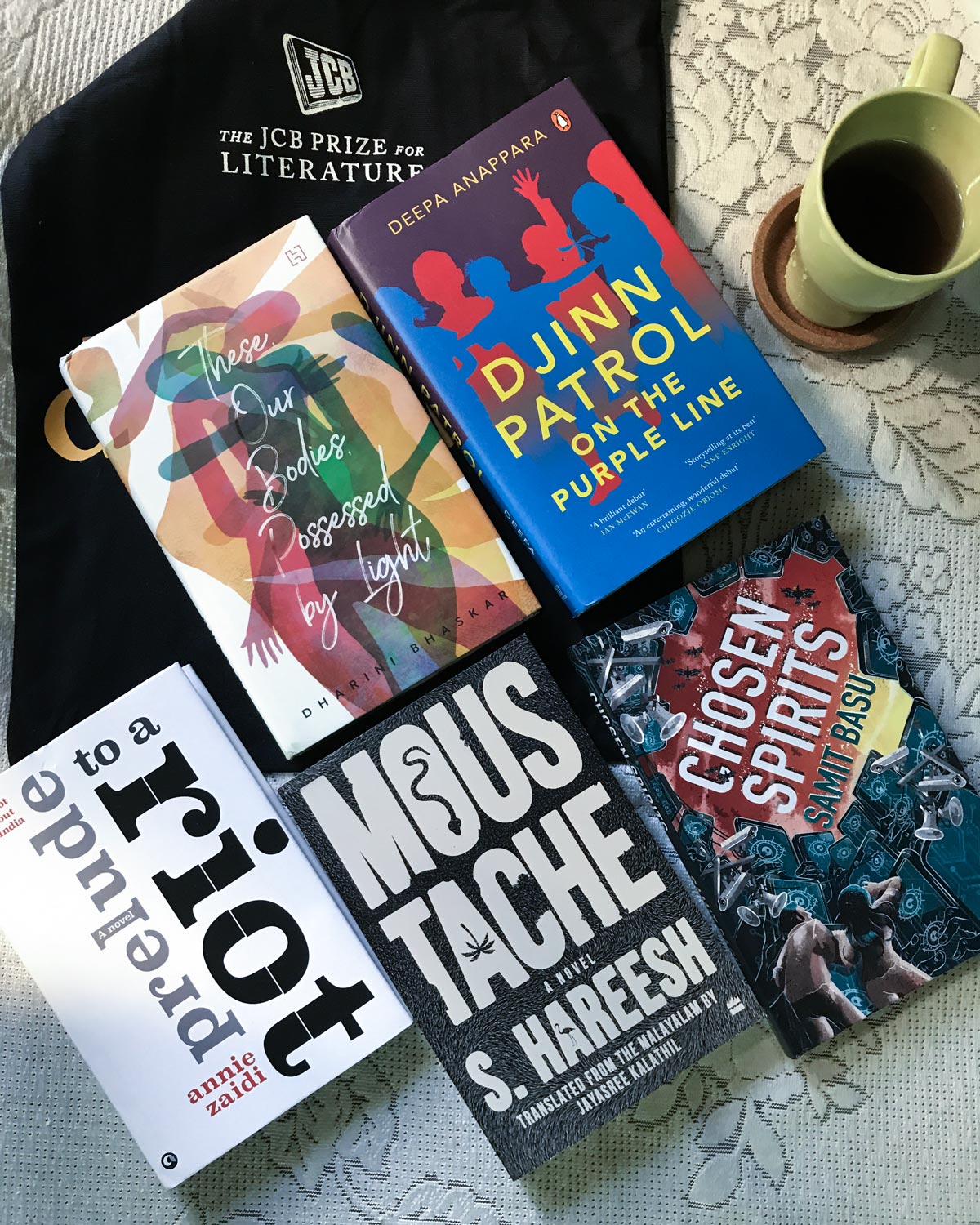Reader. Dreamer. Writer.
It so happens that I have made my way through the The JCB Prize for Literature shortlist 2020, India’s richest literary prize. True to the lists of the years before, this year too has given us a strong longlist of books. The 2020 shortlist is fascinating with two debut novels and a translation. While novels like Prelude to a Riot and Chosen Spirits makes one feel disoriented about the present and future, Anappara’s Djinn Patrol on the Purple Line makes us cry for the under privileged who bear the brunt of unimaginable injustice. Hareesh’s Moustache, the only translation in the shortlist, deftly translated by Kalathil, is a sprawling literary treat about the folk tales that make us and nature that nourishes us. On the other hand, These, Our Bodies Possessed by Light takes us deep into white lies and paradoxes in a domestic space through three generations of women.
Reader’s Guide to The JCB Prize for Literature Shortlist 2020
Here are mini reviews of the five books that bagged a place in the JCB Prize for Literature shortlist 2020. All of them are exemplary books, which might mean the jury has a harder time deciding on a winner this year.
Prelude to a Riot by Annie Zaidi
The novel is set in a nameless, peaceful town in South India amidst lush spice plantations (presumably in the Kodava regions) and follows three generations of two families — a Hindu upper-caste family and a Muslim one. In its slim volume, Prelude to a Riot presents a vast array of characters — Dada, the Muslim patriarch, who lovingly talks to the plants in his estate and cannot be forced to migrate by his grandson Abu, Devaki who married for love but becomes a witness to her husband, father and brothers transforming into fanatics, the History teacher Garuda who asserts how history repeats itself in hideous ways and why a close study of our past is essential and many more. There is even a Self-Respect Forum, run by Appa, which sows seeds of hatred against “outsiders” — Muslims, migrant workers.
Conversations are kept to a minimum and readers get acquainted with characters through soliloquies and vignettes of their life. This technique is intoxicating to the reader who reads between the lines, but might be lost on one who likes a more direct approach to the plot and characters. Zaidi’s biggest achievement is how effortlessly she distills the present-day India, together with its intolerances—into a potion that gains potency as we near the end of the novel. An unrest grips us, foreshadowing the violence that would follow in the novel. By the last page, it is quiet, yet brimming, seething with all things that are yet to come. And in real life, things that have already come.
Buy on Amazon In
By the last page, PRELUDE TO A RIOT by Annie Zaidi is quiet, yet brimming, seething with all things that are yet to come. And in real life, things that have already come. Share on X
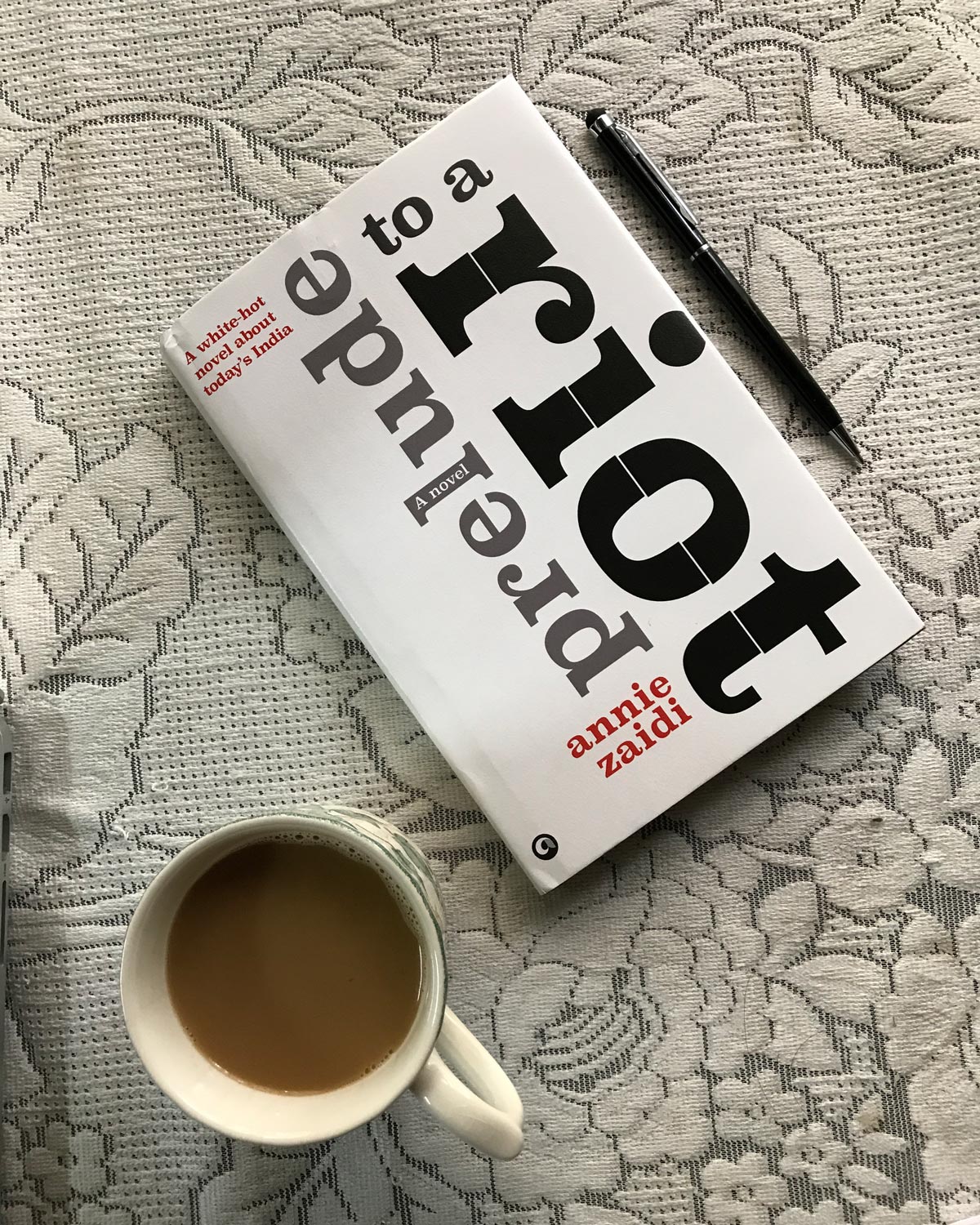
These, Our Bodies Possessed by Light by Dharini Bhaskar
Dharini Bhaskar’s debut novel is a dose of poetic beauty wrapped in three generations of women, narrated by the middle-child Deeya. Amamma Sarojaa (married at the age of sixteen as a second wife to a much older man), mother Vanaja (obedient and homely person keeping unsent postcards and inventing lies about her husband who abandons the family) and her three children — the ‘lady-like’ Ranja who craves perfection and stability, booklover Deeya who hopes to find her father in Norway one day and flighty Tasha who falls in and out of love quickly. These women hold together the family by safeguarding paradoxes, inventing stories and finding solace in myths — Greek, Biblical, Hindu and Scandinavian.
I had the pleasure of interviewing Dharaini Bhaskar for Huffpost In where she helped me understand the delicateness of staying together as a family. She also shared her persevarance to find the musicality in language — No doubt an admirable quality that has helped her to find a place in the JCB Prize for Literature shortlist 2020.
I greatly enjoyed getting to know these five women of the household. Men and bigger political events that happen in the country take a backstage —being shortened to paragraphs — and the unblemished focus stays on the characters that inhabit the domestic space. Apart from the sound and rhythm of prose, I was also impressed by Bhaskar’s inventive and unique words — fruit-quips, scent that is ‘treacle-thick’, children coming ‘unstitched’ at the table, saris that dance like ‘bellows of an accordian’, and (Mamma’s) earlobes that smell of far-flung Madras gardens. There are portions in the novel where I would have liked a stronger grasp on the plot and a weaker infusion of lyricism. But even then, These, Our Bodies Possessed by Light remains an enjoyable read. I still think of them all, especially Vanaja.
Buy on Amazon In
This novel features a domestic space where five women hold together the family by safeguarding paradoxes, inventing stories and finding solace in myths — Greek, Biblical, Hindu, Scandinavian. Share on X
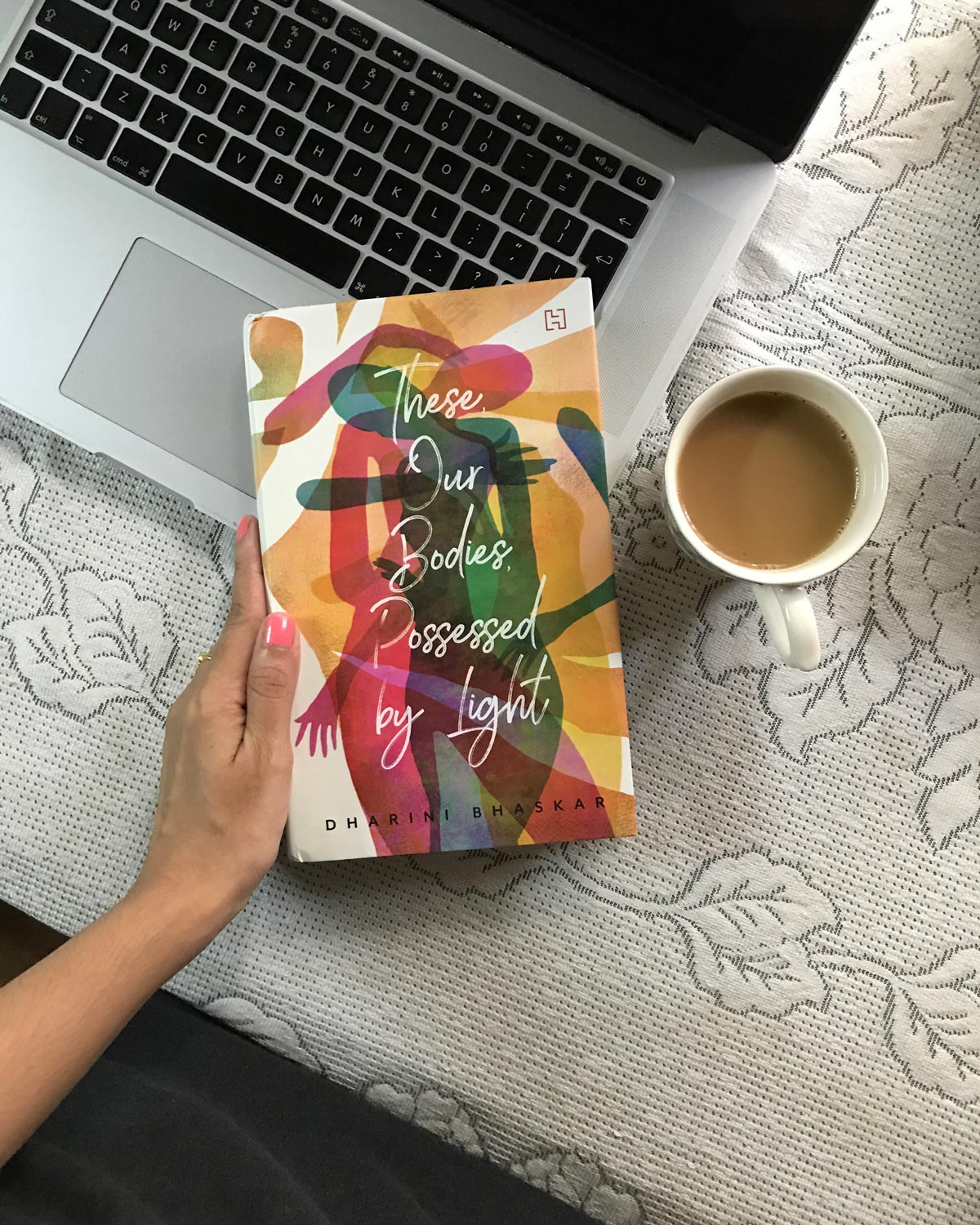
Moustache by S. Hareesh, translated from the Malayalam by Jayasree Kalathil
I began reading Moustache very early into the new year, but took the longest time in reading it. It is heavy (read three pages and you’ll feel you have read fifty), majestic, filled with folklores and steeped in the beauty of the low-level farming areas of Kuttanad. On a glance at the blurb, you might think this is a story of caste hierarchy when a lower caste Pulayan sports a moustache for acting the role of a policeman in a play, and the upper caste men are irked at his audacity. But this is a novel that not only explores such unjust social hierarchies, but also the raw, rural life — labourers who work in paddy fields, duck herders, fishermen, policemen — and the beauty of Kuttanadu through the waterways, fields and soil.
Moustache is a difficult book to translate but Jayasree Kalathil has done an impeccable job at capturing the sentiments from Malayalam into English. In a work-related email exchange, Kalathil said that she finds translation an iterative process. She “avoids mainstreaming” and her focussed on the aesthetics and musicality to translate the lyricism in Moustache. She remembers negotiating “the cultural and linguistic imaginaries and politics in both English and Malayalam” (for regional variations) and educating herself about below-sea-level farming system, and the mechanics of dredging up land from lakes, in preparation.
I was not pleased with the depiction of women in Moustache, but after reading the Introduction where Hareesh himself addresses this, I was able to set the displeasure aside. Moustache isn’t a novel for everyone. It requires work, and patience to understand the cultural and ecological context (especially if you are unfamiliar to Kerala) but it is a novel that I knew would be a favourite of 2020 as soon as I read it. It is one I would recommend over and over again, because it is indeed a masterpiece.
Buy on Amazon In
A majestic novel steeped in Kuttanadu's nature, folklores, rural way of life and caste problems. It is heavy, lyrical and worth your time — MOUSTACHE Share on X
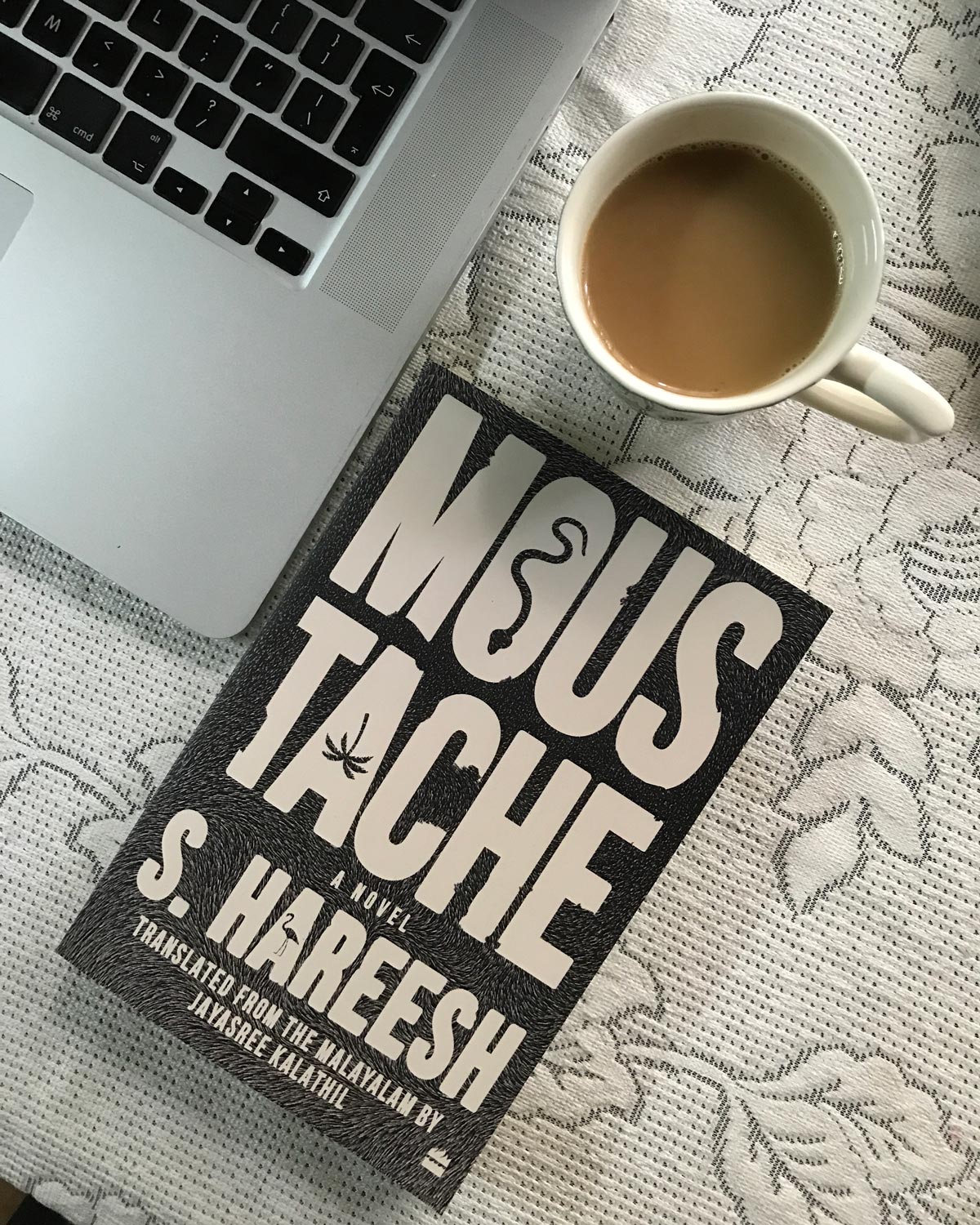
Chosen Spirits by Samit Basu
I felt two things while reading Chosen Spirits by Samit Basu — a sense of dread thinking whether this will be our future soon and also a sense of relief that we haven’t progressed as far as the world in the book. Basu’s novel is at best contemporary with a twang of dystopian elements. Perhaps what our world would look like with a few teeny additions in technology. The novel follows Joey who is a Reality Controller of a famous Flow-er (and ex) Indy and Rudra (the new Reality Editor hailing from an elite family). Rudra’s girlfriend Tara hopes to become a famous Flow-er while Zaria, a controversial public figure might have secret plans as she agrees to be a new entrant in the Flow.
Flow-ers are similar to our present-day influencers. They live stream their life for the fans but they can have different personas that cater to the needs of the audience. The storylines that are streamed —complete with conflicts, secrets, resolution, even sex — are controlled and edited, to give their fans maximum viewing pleasure. There are also smartatts (tattoos that know your emotions. I am so glad these don’t exist now), an AI Narad (like Siri whom I found very annoying), the chaotic city of Delhi and deep levels of surveillance on the ordinary lives of citizens. The world of Flow-ers (influencers) and producers is soon run over by bureaucratic moves, sex scandals and betrayals. You will journey through everything that happens around you now, in this novel — disharmony among people, click bait headlines, and the voyeuristic pleasure in other people’s lives. Chosen Spirits is infinitely imaginative in scope. However therein lies its weakness. Perhaps a lesser number of imaginative flights and smart objects might’ve made a stronger plot. But also, the novel showcases one of the most unusual worlds that is eerily similar to our own.
Buy on Amazon In
CHOSEN SPIRITS — A highly imaginative novel with influencers with different personas, smart tattoos, Siri-like Narad and scandals in a world eerily similar to our own. Share on X
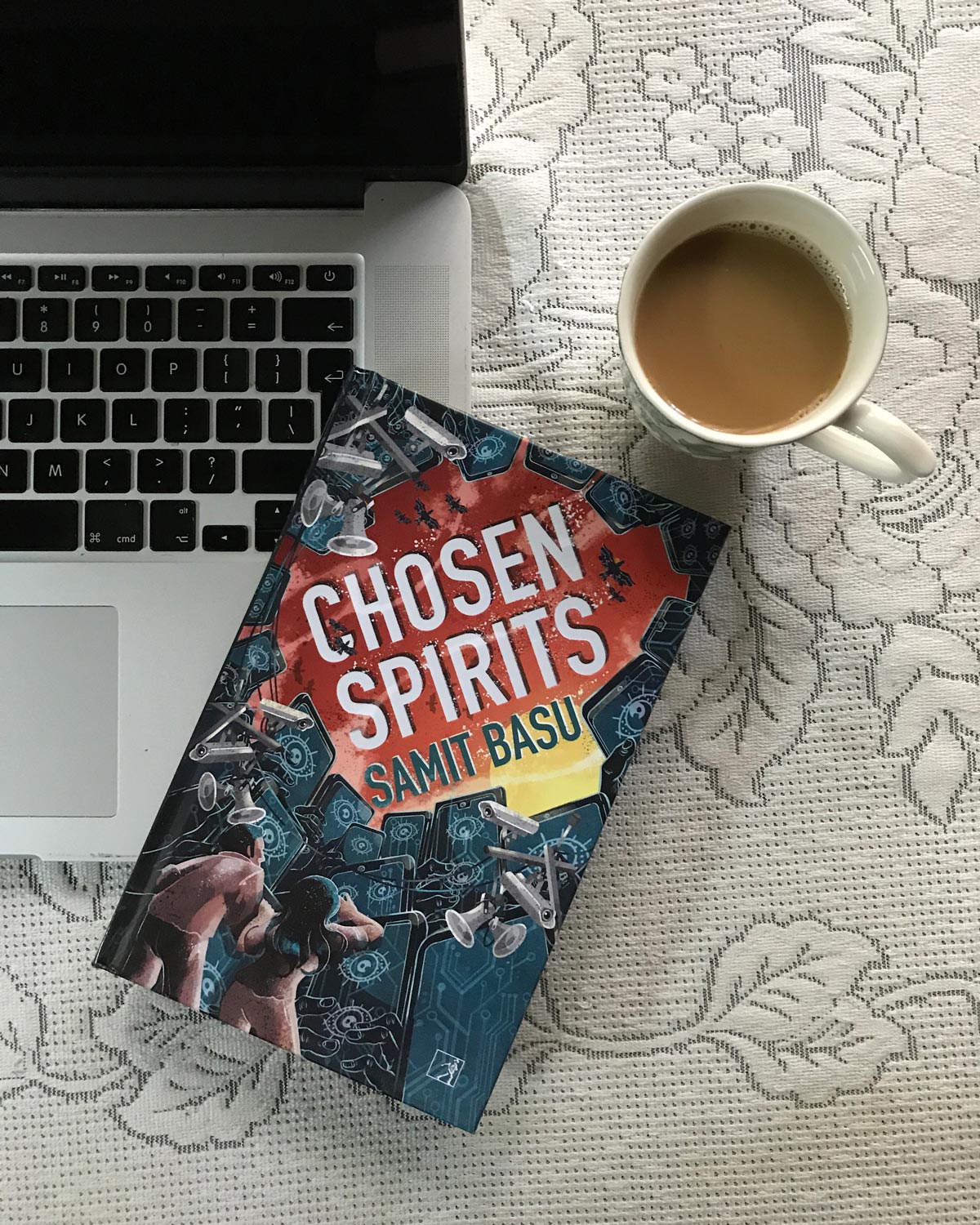
Djinn Patrol on the Purple Line by Deepa Anappara
Djinn Patrol on the Purple Line was the first from the JCB Prize for Literature shortlist 2020, that I read. I read it towards the beginning of the year and enjoyed it. It is a literary mystery narrated by a child protagonist that goes deep into the problems that affect India’s financially poorer masses. Nine-year-old Jai, our narrator, lives with his parents and sister, Runu-didi. When children in the basti start disappearing, and friend Bahadur goes missing, Jai (who loves reality cop TV shows) joins hands with his friends — the studious Pari and the perfect-spy Faiz — to solve the mystery. Faiz is certain, that the children are snatched by evil djinns while Pari is more practical in her approach.
The biggest strength of the debut novel is Anappara’s choice of a child narrator who introduces us to this grime filled, gritty world while trying to get to the bottom of the mystery. The Indian-English — ‘side-by-side’, ‘su-su’, ‘mood off’ — adds more pleasure. Books set in India sometimes fall into the pit of romanticization of poverty. It is heartening to note that Anappara has not stumbled but stayed strong with her plot and characters. The novel addresses many major issues — threats of destruction of households by the rich, insensitivity of ‘hi-fi’ madams to the domestic labourers, alcoholism, abusive parenthood, and Hindu-Muslim disharmony. However, in the process the magical aspects — ghosts, djinns — feel underdeveloped. Nevertheless, Djinn Patrol on the Purple Line is a harrowing read. Jai and his friends will surely linger in your thoughts long after you finish the book.
Buy on Amazon In
In DJINN PATROL ON THE PURPLE LINE, a child detective and his friends look into the mystery of disappearing children, djinns, rich people and religious disharmony Share on X
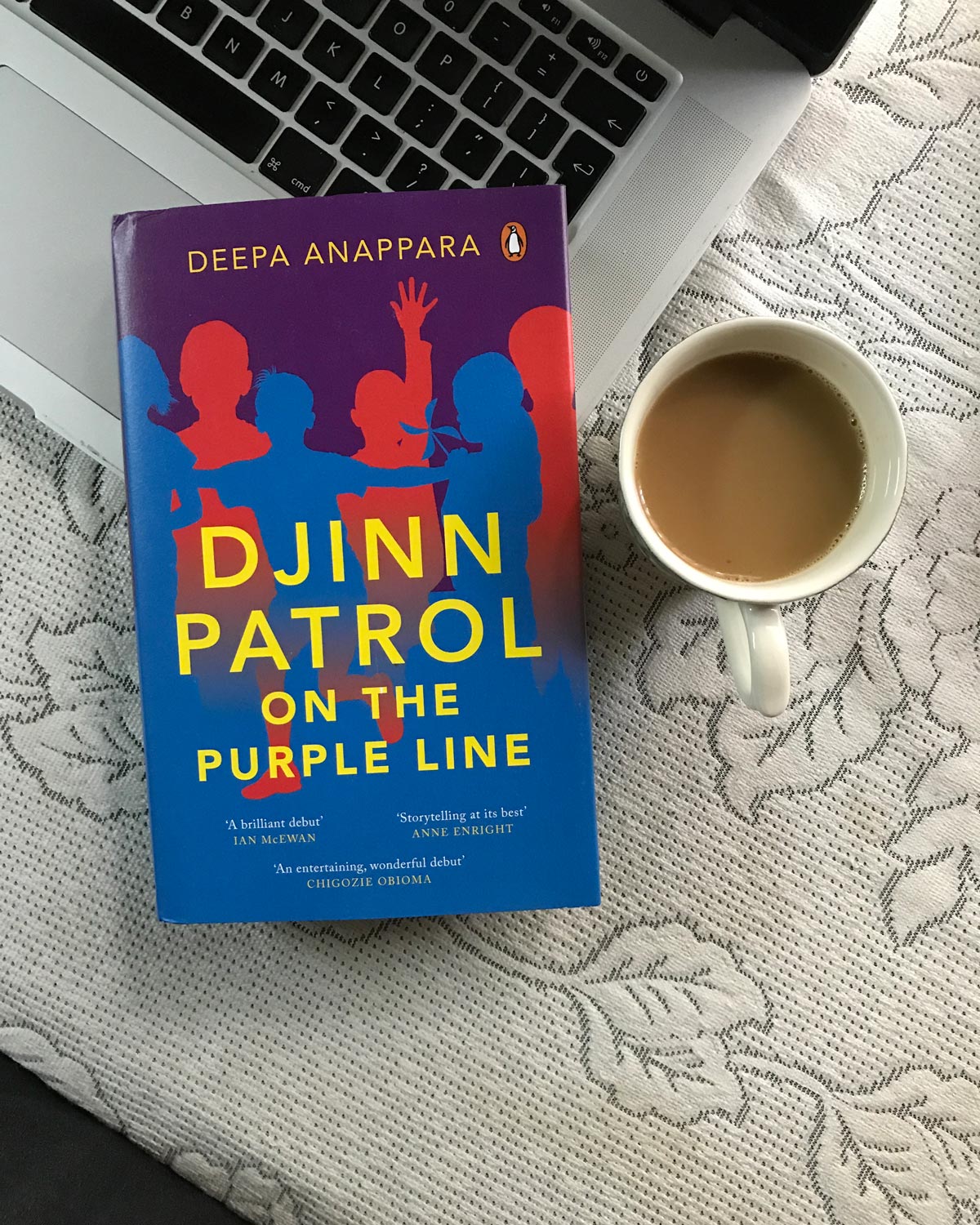
The JCB Prize 2020 Prediction
It is difficult to choose a favourite among the JCB Prize for literature shortlist because they all stand tall in their strengths. This is also a year where I enjoyed reading all the books that were chosen. My favourite from the list is Moustache with its sprawling folklore and water bodies. But my prediction vote goes to Prelude to a Riot which is quiet, yet terrifying. No matter which book wins — there can only be one winner after all —, add all the shortlisted books to your reading list. They are worth your time.
Who will win #theJCBprize2020 ? A reader's guide to the shortlist plus a prediction Share on X
